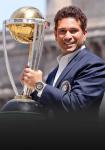Of the Indian foreign ministers I have worked with, Jaswant Singh is the most enigmatic. The contradictions in him go beyond his joining the BJP despite his secular and military background. He has many good qualities like politeness, self-confidence and patriotism, but his stern demeanour and conversational style leaves many people bewildered.
His description of his maternal grand father seems to fit him well: "...cultured as to embody the values and traditions of the desert: above all freedom, an unbending spirit, self-esteem without pride, also a clear sense that between self-confidence and arrogance exists a very thin line, often not visible."
I read Jaswant Singh's A Call to Honour, essentially to find a key to his enigmatic personality, but I found, instead, more complexities and contradictions. He is reported to have said that he wished he had not written the book, this means that he himself is not sure what he wanted to accomplish by the book, which, he claims, is a distinctive genre.
To create a new genre is to break away from the constraints of definitions and traditions and to escape from the obligations that established genres impose on the author. The book is both a memoir and an autobiography, he says, and an analysis too. Perhaps, he should have mentioned fiction and poetry also as his flights of fictional fancy and poetic imagination are present in the book.
The book, which is highly readable and thought-provoking, has received attention for the wrong reasons. In my view, the most sensational part of the book is neither the "mole" nor the Kandahar narrative. It is the contradiction between his and the BJP's declared position on the Indo-US nuclear deal and the assessment he has made in the book of the present state of Indo-US relations.
The nuclear deal is "clearly not a giant step forward, neither by India, nor the US, but is at least forward movement... The logic of May 1998 asserting itself has brought about this, and for me this is a matter of considerable satisfaction...That seed of May-June 1998 is now a young tree."
The BJP and Jaswant Singh have, on the other hand, criticised the deal and distanced themselves from it. He has apparently circulated a study of the agreement to show how it militates against the interests of India.
Another puzzle about the book is that it is not a sequel to Strobe Talbott's Engaging India as it was widely expected to be. After two hundred pages of a gripping narration of the most intensive dialogue the United States had with India on nuclear issues, Talbott makes an astounding conclusion: "Jaswant is feeling once bitten, twice shy -- not bitten by us, but by circumstance and by his countrymen. The last several months seemed to have taken a considerable toll on him --politically, physically and psychically. Now, more even than we started in June '98, we must recognize that Jaswant isn't Vajpayee; he isn't the BJP; he isn't the Parliament and he isn't India...The boulder we had been counting on Jaswant to budge was still at the bottom of the hill... We had exhausted our leverage on Indian decision making."
Jaswant Singh's chapter on "Engaging the Natural Ally" is so sketchy that it does not even seek to answer this charge. His assessment is more optimistic and less dramatic. "By then Strobe and I knew that the venture on which we had started would remain unfinished. We had set out on our journey for a "way to that village". We had found the way, I was sure, but we had not the time to cover the journey and reach the village."
Jaswant Singh owes the country a fuller account of the journey in order to remove the cobwebs. It is not enough that he explains away the statements he and the prime minister made about adhering to the CTBT as "deflective ambiguity."
As for the "mole" in the Prime Minister's Office, the most significant point is that Jaswant Singh does not speak of a "mole" at all. He merely quotes an unknown writer about "a person with direct access to Prime Minister", who keeps the Americans informed of the testing plans of P V Narasimha Rao.
Since a "mole" is generally a paid agent, someone friendly enough to the Americans to share some sensitive information for the sake of smooth Indo-US relations and that too after swearing them to secrecy is certainly not a "mole". The search for a "mole" has deflected attention from someone who may have given the information for reasons other than monetary. This portion of the book and the contradictory statements that Jaswant Singh made after it generated a national debate have deepened the mystery.
Jaswant Singh's remarks on the practices in the ministry of external affairs contradict his reliance on the institution which served him well when he was the minister. He may not have carried briefs and files to his meetings, but he had the benefit of the facts and analyses given to him by the ministry and the files and briefs were close at hand.
There were also diplomats around him to fill the gaps he left in his freewheeling presentations. He even quotes from official communications and gives credit to some officers for some of the ideas he put forward. But there is no acknowledgement of the contribution of the foreign service, not even of the foreign secretary, to his accomplishments.
A brilliant foreign minister does not have to minimise the contribution of his Foreign Office in order to highlight his own achievements.
The Kandahar episode conceals as much as it reveals. His diary comes in the way of actual narration of events as the diary is reflective and philosophical. The choice between life and death is never so stark in the context of the fight against terrorism and there must have been other compelling considerations. Perhaps, like in the case of India's links with the Northern Alliance in Afghanistan, Jaswant Singh has decided that the time has not come yet to tell the whole story.
With all its mysteries and gaps, the book is most valuable not just as a chronicle of Jaswant Singh's public life, but also as the thoughts of an extraordinary politician on the past, present and future of Indian diplomacy. His forays into history testify to his erudition. But the enigma of the man behind the book remains.







 © 2025
© 2025